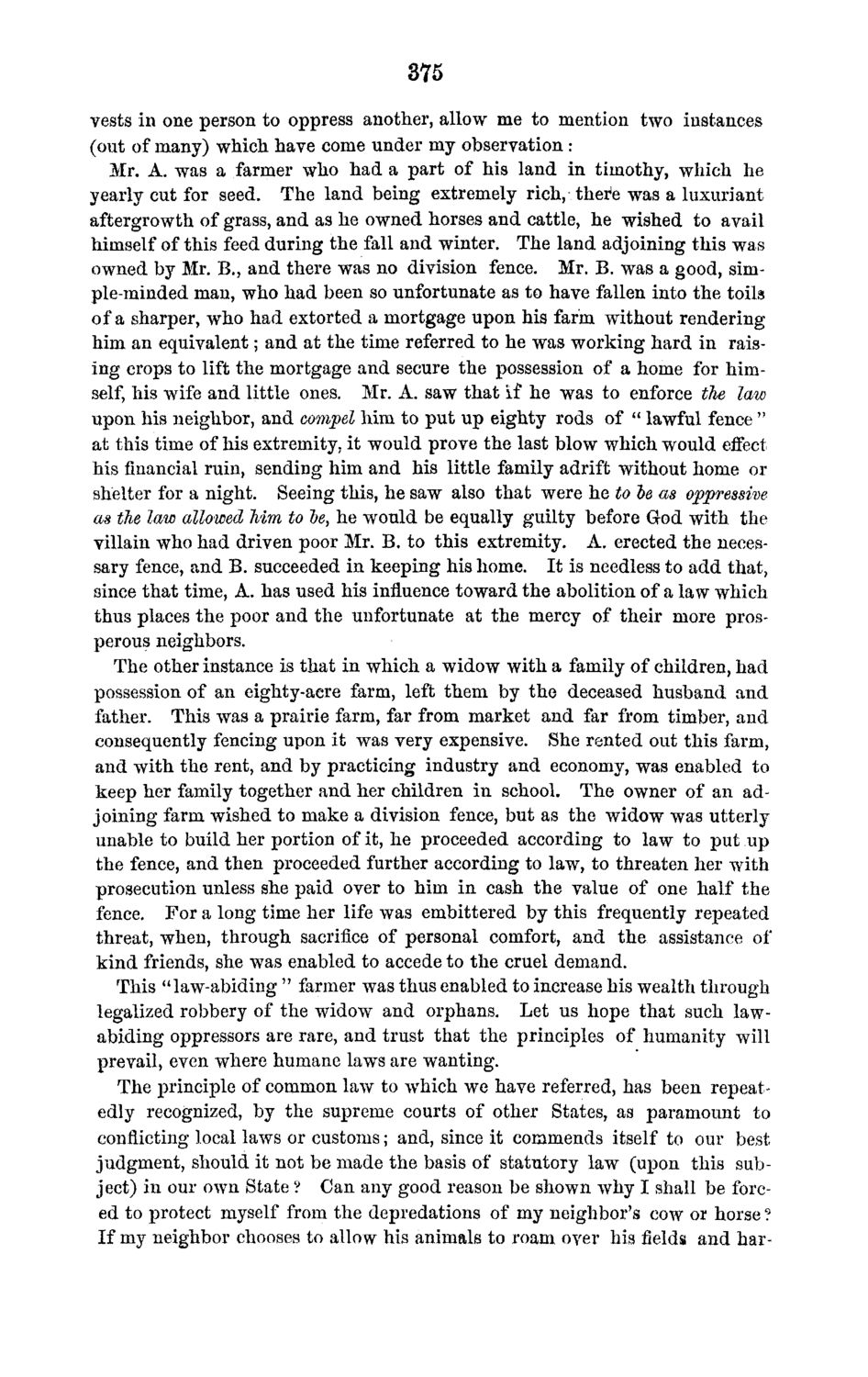| |
| |
Caption: Board of Trustees Minutes - 1870
This is a reduced-resolution page image for fast online browsing.

EXTRACTED TEXT FROM PAGE:
375 vests in one person to oppress another, allow me to mention two instances (out of many) which have come under my observation : Mr. A. was a farmer who had a part of his land in timothy, which he yearly cut for seed. The land being extremely rich, ther'e was a luxuriant aftergrowth of grass, and as he owned horses and cattle, he wished to avail himself of this feed during the fall and winter. The land adjoining this was owned by Mr. B., and there was no division fence. Mr. B. was a good, simple-minded man, who had been so unfortunate as to have fallen into the toils of a sharper, who had extorted a mortgage upon his farm without rendering him an equivalent; and at the time referred to he was working hard in raising crops to lift the mortgage and secure the possession of a home for himself, his wife and little ones. Mr. A. saw that if he was to enforce the law upon his neighbor, and compel him to put up eighty rods of " lawful fence " at this time of his extremity, it would prove the last blow which would effect his financial ruin, sending him and his little family adrift without home or shelter for a night. Seeing this, he saw also that were he to be as oppressive as the law allowed him to be, he would be equally guilty before God with the villain who had driven poor Mr. B. to this extremity. A. erected the necessary fence, and B. succeeded in keeping his home. It is needless to add that, since that time, A. has used his influence toward the abolition of a law which thus places the poor and the unfortunate at the mercy of their more prosperous neighbors. The other instance is that in which a widow with a family of children, had possession of an eighty-acre farm, left them by the deceased husband and father. This was a prairie farm, far from market and far from timber, and consequently fencing upon it was very expensive. She rented out this farm, and with the rent, and by practicing industry and economy, was enabled to keep her family together and her children in school. The owner of an adjoining farm wished to make a division fence, but as the widow was utterly unable to build her portion of it, he proceeded according to law to put up the fence, and then proceeded further according to law, to threaten her with prosecution unless she paid over to him in cash the value of one half the fence. For a long time her life was embittered by this frequently repeated threat, when, through sacrifice of personal comfort, and the assistance of kind friends, she was enabled to accede to the cruel demand. This "law-abiding " farmer was thus enabled to increase his wealth through legalized robbery of the widow and orphans. Let us hope that such lawabiding oppressors are rare, and trust that the principles of humanity will prevail, even where humane laws are wanting. The principle of common law to which we have referred, has been repeatedly recognized, by the supreme courts of other States, as paramount to conflicting local laws or customs; and, since it commends itself to our best judgment, should it not be made the basis of statutory law (upon this subject) in our own State ? Can any good reason be shown why I shall be forced to protect myself from the depredations of my neighbor's cow or horse ? If my neighbor chooses to allow his animals to roam over his fields and har-
| |